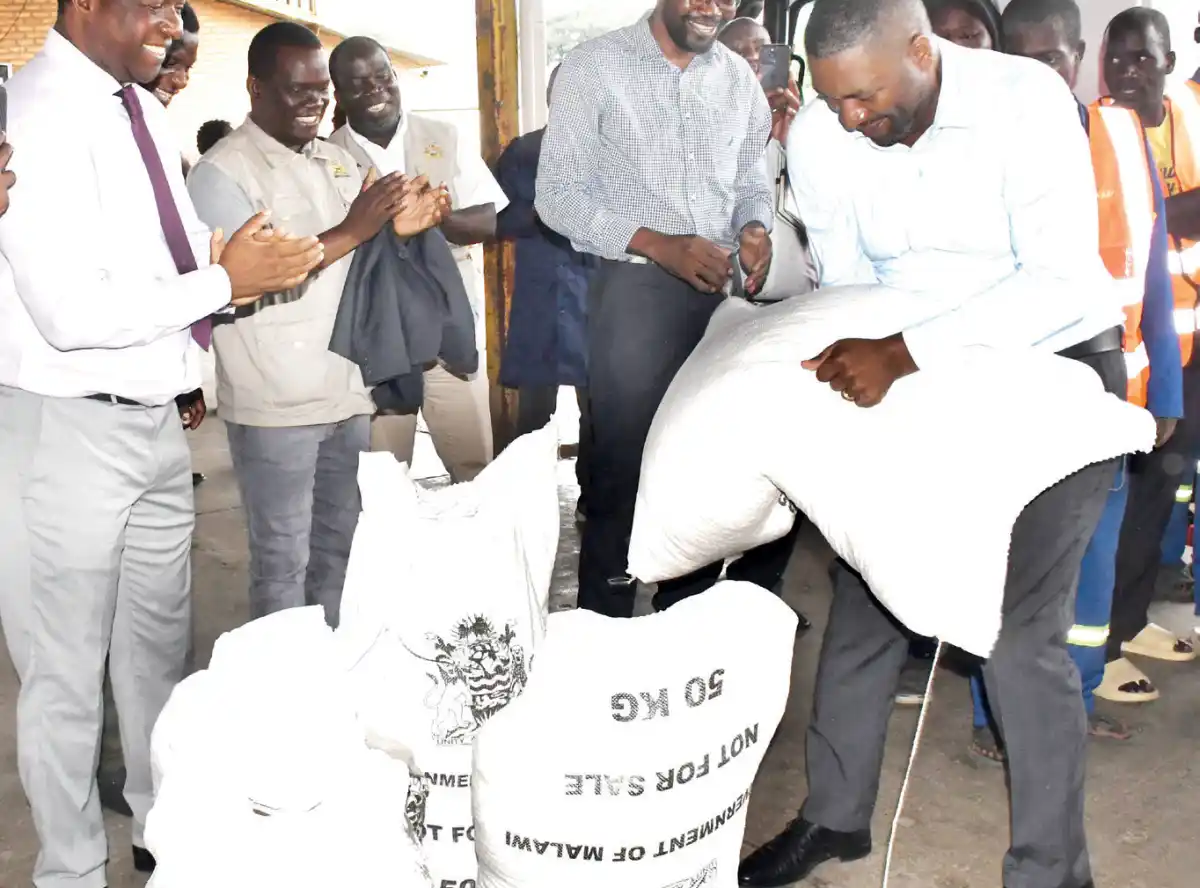
By Kondwani Mhone:
With the lean period still two months away from ending, at least three million Malawians are expected to receive relief food in the form of maize from the consignment that has been procured from Tanzania.
The maize started arriving in the country yesterday from Malawi’s northern neighbour, bought by the Malawi Government with funds from the World Bank-funded Agriculture Commercialisation Project and the Resilience Climate Response Project.
Agriculture Minister Sam Kawale said the government is determined to ensure that hungry Malawians have access to relief food during “this critical period”.
He was speaking at World Food Programme (WFP) warehouses in Limbe, Blantyre, where he officially received the first batch of the consignment in the company of his counterpart from the Ministry of Information, Moses Kunkuyu.
Kawale said that at least 47,600 metric tonnes, procured from Tanzania with WFP providing logistical support, are expected to reach hungry households in 15 of the country’s districts.
“The President made a commitment and repeated it in his State of the Nation Address that the provision of relief food during this critical time is his government’s priority.
“By the end of March, the whole consignment will have arrived in the country, but distribution starts right away,” the minister said.
In a post-event interview, Kunkuyu said the government acknowledges that some people are unable to procure maize from the commercial market due to escalating prices.
He, however, indicated that all households earmarked for assistance are being assisted and that there is enough maize for restocking Admarc.
Kunkuyu also lamented what he called the tendency of some Malawians who benefit from aid by selling the relief items, leaving those who desperately need them hungry.
“Because there is some porousness in the identification of beneficiaries, you sometimes find that one household has two or three beneficiaries who relieve the aid, which they end up selling.
“It is the responsibility of everyone in this country, including the media and traditional leaders, to put a stop to this habit,” he said.
In his remarks, interim Country Director for WFP Malawi, Simon Denhere, said that since September last year, WFP has partnered with the government of Malawi to provide food assistance in the most affected districts, reaching 1.5 million people.
Denhere said that through the partnership between the United Nations agency and the Malawi Government, WFP is importing the maize, valued at $35 million, on behalf of the government of Malawi.
“The government of Malawi, through its national distribution systems, will ensure that approximately three million people receive this critical assistance, sustaining families until the next harvest between April and July,” he said.
Denhere added that beyond the agreement between the agency and the Malawi Government, WFP remains committed to supporting Malawi in advancing long-term solutions, including sustainable food production, nutrition programmes and school meals.
“As we move forward, we call on all partners to reinforce collaboration to overcome this crisis and ensure that no one is left behind,” he said.
The Department of Disaster Management Affairs (Dodma) is expected to coordinate the distribution of the maize to the targeted districts.
Dodma’s Director of Disaster Preparedness and Response, Mose Chimphepo, said the department had already sent a matrix to WFP on the distribution.
Malawi is currently facing a significant food security crisis, largely triggered by the El Niño-induced dry spell that severely impacted crop yields nearly a year ago, resulting in a poor harvest.
More than 44 percent of the country’s crops were damaged, leaving 5.7 million people facing acute food insecurity since October.






0 Comments